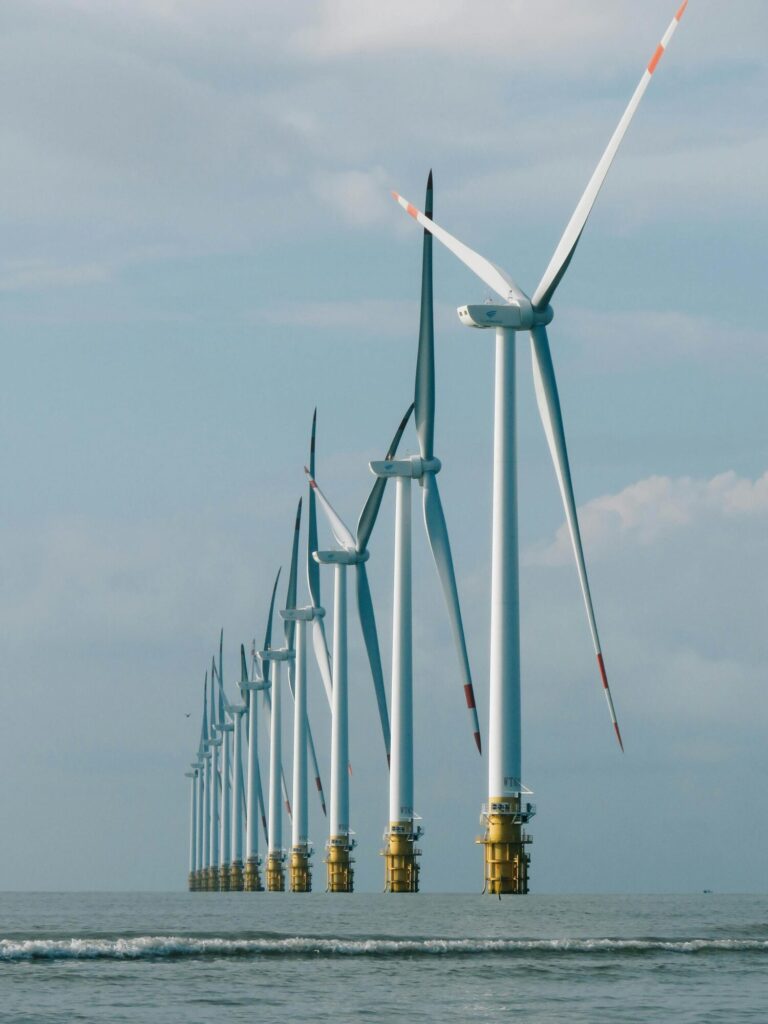The European Union is at the forefront of the global green tech revolution, channeling 21% of its venture capital—approximately $10 billion annually—into sustainability-focused startups. With the European Green Deal aiming for net-zero greenhouse gas emissions by 2050, the region’s green tech sector is a hotbed of innovation, offering investors high-growth opportunities in renewable energy, circular economy solutions, and carbon capture technologies.
In 2025, the European climate tech market is projected to see $13.5 billion in investments, despite a broader venture capital slowdown. For investors, the challenge is identifying startups with scalable solutions and strong market fit in a competitive landscape. This article highlights top green tech startups in the EU, key market trends, and actionable insights for investors navigating this dynamic sector.

The Green Tech Market: A $13.5 Billion Opportunity
The European green tech market is thriving, driven by robust policy support, consumer demand for sustainability, and technological advancements in AI, IoT, and robotics. According to industry reports, European climate tech startups raised $1.1 billion across 69 deals in February 2023 alone, signaling sustained investor interest.
The sector spans diverse verticals, including renewable energy, waste management, sustainable mobility, and carbon removal, with a projected global green tech market growth to $600 billion by 2030. Europe’s leadership is bolstered by initiatives like the European Green Deal and InvestEU, which provide funding and regulatory clarity to scale green innovations.However, challenges persist.
High capital requirements, regulatory fragmentation across EU member states, and competition from the U.S. (bolstered by the Inflation Reduction Act) pose hurdles for startups. Investors must prioritize companies with proven technologies, strong unit economics, and the ability to navigate complex regulations. Below, we spotlight five promising EU green tech startups that stand out for their innovation, funding traction, and market potential in 2025.

Top Green Tech Startups to Watch
- H2 Green Steel (Sweden)
Founded in 2020, H2 Green Steel is revolutionizing steel production by using green hydrogen to reduce carbon emissions by up to 95% compared to traditional methods. Headquartered in Stockholm, the company secured €190 million in Series B funding in 2022 and is building a flagship plant in Boden, Sweden, set to begin production in 2025. With steel production accounting for 7% of global CO2 emissions, H2 Green Steel’s scalable model offers significant environmental and economic impact. Investor Appeal: Strong corporate partnerships with companies like Mercedes-Benz and a focus on a high-emission industry make it a prime candidate for growth. - Sylvera (United Kingdom)
London-based Sylvera, founded in 2019, develops software to track and verify carbon offsets, bringing transparency to the $2 billion carbon credit market. Its AI-driven platform analyzes real-time carbon data, enabling investors and corporations to fund high-impact climate projects. Sylvera raised $57 million in Series B funding in 2023, with backers including Balderton Capital. Investor Appeal: Its B2B model and alignment with EU ESG regulations position it for rapid adoption in a market hungry for credible carbon solutions. - Fairmat (France)
Headquartered in Paris, Fairmat, founded in 2020, focuses on recycling carbon fiber composites into lightweight, sustainable materials for industries like aerospace and automotive. The startup raised $33 million in 2022 and has secured partnerships with major manufacturers like Airbus. Its proprietary recycling process reduces waste and aligns with circular economy goals. Investor Appeal: Fairmat’s B2B focus and scalable technology make it a strong contender in the growing sustainable materials market. - Climeworks (Switzerland)
Founded in 2009, Zurich-based Climeworks is a global leader in direct air capture (DAC) technology, removing CO2 from the atmosphere and storing it underground. Its Mammoth facility in Iceland captures 36,000 tons of CO2 annually, serving clients like Microsoft and Stripe. Climeworks raised $650 million in 2022, one of the largest climate tech rounds in Europe. Investor Appeal: Proven technology, high-profile clients, and alignment with EU carbon removal goals make Climeworks a low-risk, high-reward investment. - Enpal (Germany)
Berlin-based Enpal, founded in 2017, rents solar panels and heat pumps to homeowners, reducing upfront costs and grid reliance. Valued at $2.5 billion after a €430 million Series D in 2023, Enpal’s 158% team growth in the past year reflects its rapid scaling. Investor Appeal: Its consumer-focused model and debt financing strategy offer stable cash flows and resilience in a volatile funding environment

Key Trends Driving Investment Opportunities
Renewable Energy and Storage:
The EU’s push for renewable energy infrastructure, particularly solar, wind, and battery storage, is creating opportunities for startups like Field (UK), which develops renewable battery storage projects, and VOOL (Estonia), which focuses on EV charging infrastructure. The renewable energy segment attracted $4.2 billion in 2023, with growth expected to accelerate in 2025.
Circular Economy Solutions:
Startups like Fairmat and Healix Clean Tech (Netherlands), which recycles plastic fiber waste, are capitalizing on the EU’s circular economy initiatives. The circular economy market is projected to reach €1 trillion by 2030, driven by policies promoting waste reduction and resource reuse.
Carbon Capture and Removal:
With the EU aiming to scale carbon removal to 50 million tons annually by 2030, startups like Climeworks and Heimdal (UK) are well-positioned. The global carbon capture market is expected to grow at a 20% CAGR through 2030, offering high returns for early investors.AI and Data-Driven Sustainability: AI-powered startups like Sylvera and Greenomy (Belgium), which provides sustainability reporting software, are leveraging data analytics to meet stringent EU ESG requirements. The AI sustainability tech market is expected to grow to $28 billion by 2027.

Women-Led Green Tech:
With only 2% of VC funding going to women-led startups, green tech is emerging as a sector to close this gap. Investors are increasingly optimistic, with 92% predicting growth in funding for women-led green tech startups over the next three years, driven by strong leadership and innovation skills.
Opportunities and Challenges for Investors
Opportunities:
- Policy Support: The European Green Deal and InvestEU provide grants, loans, and regulatory clarity, reducing risk for investors. For example, the European Investment Bank’s risk-sharing capacity supports high-risk projects like nuclear fusion.
- Emerging Markets: Southern and Eastern Europe, particularly Spain and Poland, are seeing increased green tech activity due to lower operational costs and growing renewable energy adoption.
- Corporate Partnerships: Collaborations with corporates like Siemens and Airbus offer startups access to markets and resources, enhancing scalability.
Challenges:
- Funding Hesitancy: Despite positive sentiment (63% of investors are “somewhat positive” about climate tech), securing funding remains tough, with only the strongest pitches succeeding in a cautious market.
- Regulatory Complexity: Fragmented EU regulations slow down scaling, as startups must navigate varying standards across member states.
- U.S. Competition: The U.S. Inflation Reduction Act’s subsidies and faster regulatory processes are drawing green tech investment away from Europe, requiring startups to demonstrate competitive advantages.
Strategic Insights for Investors
To maximize returns in the EU green tech sector, investors should:
- Focus on Scalable Technologies: Prioritize startups with proven, scalable solutions like H2 Green Steel and Climeworks, which address high-emission industries or large-scale carbon removal.
- Leverage VC Funds: Engage with specialized funds like Norrsken VC, Inclimo Climate Tech I Fund, or Satgana, which offer expertise and networks in climate tech.
- Support Women-Led Startups: Invest in women-led green tech ventures to capitalize on untapped potential and higher societal returns.
- Mitigate Regulatory Risks: Partner with startups that align with EU ESG frameworks and have strong legal teams to navigate regulatory hurdles.
- Explore Public-Private Partnerships: Leverage EU programs like TechEU, which supports startups from idea to IPO, to reduce investment risk.

Conclusion: Investing in Europe’s Green Future
Europe’s green tech sector is a beacon of opportunity, with startups like H2 Green Steel, Sylvera, Fairmat, Climeworks, and Enpal leading the charge toward a sustainable future. Despite challenges like funding hesitancy and regulatory complexity, the EU’s policy support and growing consumer demand create a fertile ground for investment. With $13.5 billion projected to flow into climate tech in 2025, investors who back innovative, scalable, and ESG-aligned startups stand to reap significant financial and environmental rewards.
The message is clear: the future is green, and Europe is where it’s happening.Disclaimer: YTC Ventures is not a registered investment advisor. This content is for informational purposes only and does not constitute financial or investment advice. Consult a qualified financial advisor before making investment decisions.
Sources: Startuprad.io, EU-Startups, Sifted, TIME, Vestbee, Science|Business, Net Zero Insights, Speedinvest

Comments